Ever wonder why you can find the word ‘Viking’ in your everyday vocabulary? Or how some places across Europe have names that sound suspiciously Norse? The legacy of Viking exploration is so deeply ingrained in our world that it’s like a hidden thread woven into the fabric of history.
We all know Vikings as fearsome warriors with horned helmets, but they were also skilled traders and explorers who sailed vast distances. Their impact went beyond raids; they changed the political landscape and shaped language development.
In this thrilling journey through time, we’ll uncover how Viking voyages led to the unification of England, birthed Scandinavian kingdoms, and established critical trade routes even before globalization was a concept!
It’s time to go deeper into the legacy of Viking exploration and explore more about these audacious seafarers who ventured into North America long before Columbus even set sail.
Table Of Contents: Legacy of Viking Exploration
- The Viking Age and Exploration
- Viking Raids and Settlements in England
- Scandinavian Kingdoms Birthed from the Viking Age
- Trade Routes Established by Vikings
- The Exploration of North America by Vikings
- Influence of Viking Culture on Language and Society
- Political Contributions by Vikings
- FAQs in Relation to Legacy of Viking Exploration
- Conclusion: Legacy of Viking Exploration
The Viking Age and Viking Exploration
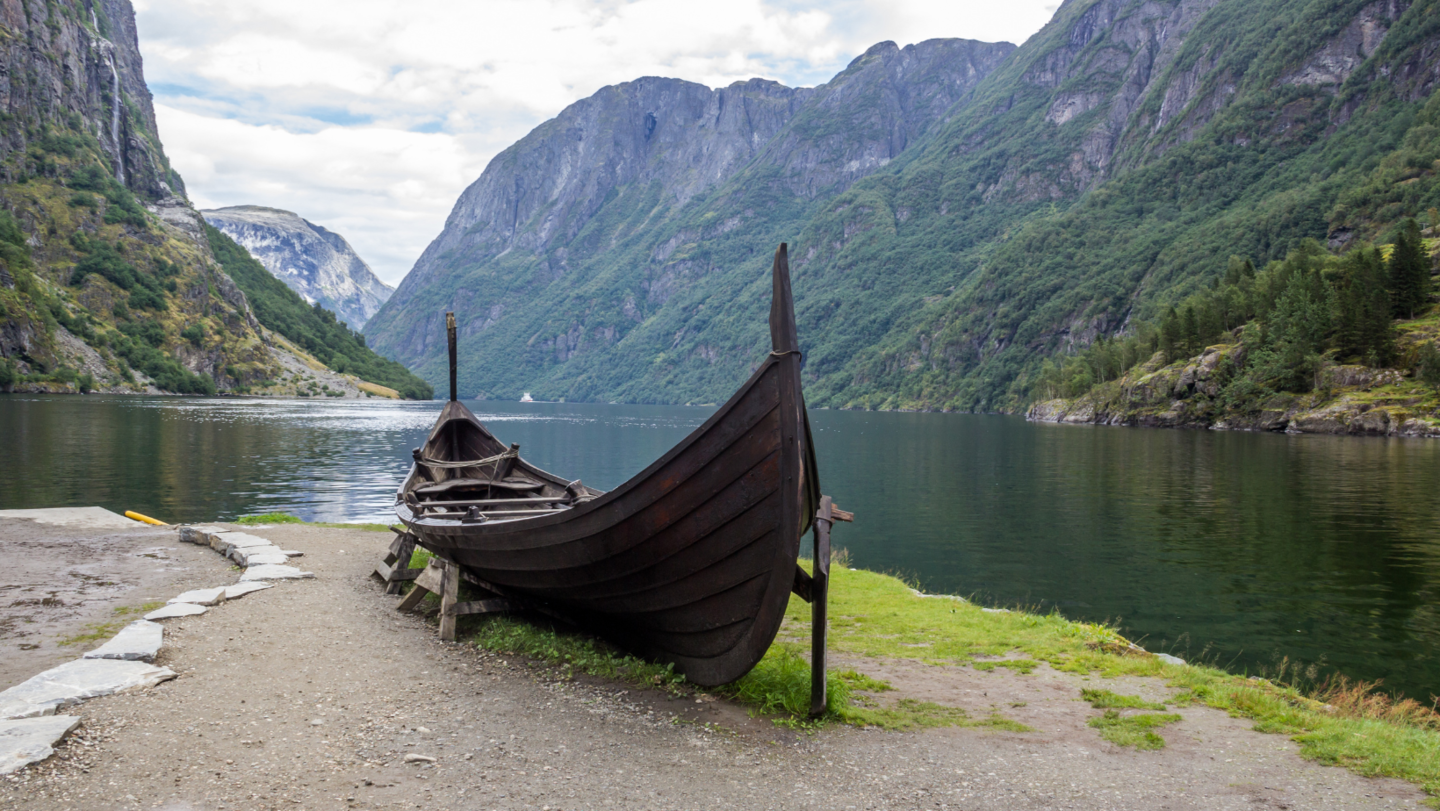
Picture this: a band of Norse warriors, daring explorers from the cold lands of Scandinavia. Their time was known as the Viking era, an age where exploration took center stage, and Vikings travel and navigational skills led their expansion. These brave souls sailed their dragon-headed longships across uncharted waters, making their mark on unfamiliar territories.
The Advent of the Viking Era
Around 800 AD, something sparked within these hardy seafarers – they set out to conquer new lands in an explosion of expansion that would last for two centuries. They were driven by necessity and ambition; overcrowded homelands and tales of abundant riches overseas lured them into adventure.
Norse mythology often speaks about brave heroes venturing into unknown realms. Perhaps inspired by these stories, real-life Vikings embarked on epic journeys far beyond their native shores.
The Far-Reaching Influence of Vikings
No place seemed too distant for our adventurous Norse people. From establishing settlements along Russia’s rivers to exploring North America’s coasts – before Columbus, mind you – they left a trailblazing with cultural exchange and historical significance.
In fact, many places still bear traces today from those early visits; towns ending in “-by” or “-thorpe,” found all over England are silent reminders echoing through time about past Scandinavian settlers. Learn more here.
“The sea is dangerous but it holds secrets which only courage can reveal.”
– Ancient Norse Proverb
For sure, some encounters between natives and newcomers led to conflict. But equally true is that intermingling cultures fertilized societies’ growth around Europe during what is now known as the Viking Age.
Moreover, their pantheon of Norse gods and goddesses found a place in local lore. Aspects of their beliefs integrated into regional mythology – imagine Thor’s hammer symbolizing power or Frigg’s wisdom guiding decisions.
combs and coins. Their legacy, firmly rooted in our culture, still piques the interest of people everywhere and kindles their creative imaginations.
Key Takeaway: Legacy of Viking Exploration
But it wasn’t just about conquering new lands. The Vikings were driven by a thirst for knowledge, eager to explore the world and its mysteries. They didn’t just leave their mark on geography; they left an indelible imprint on history too, influencing culture, language, and trade in ways that continue to resonate today.
Viking Raids and Settlements in England
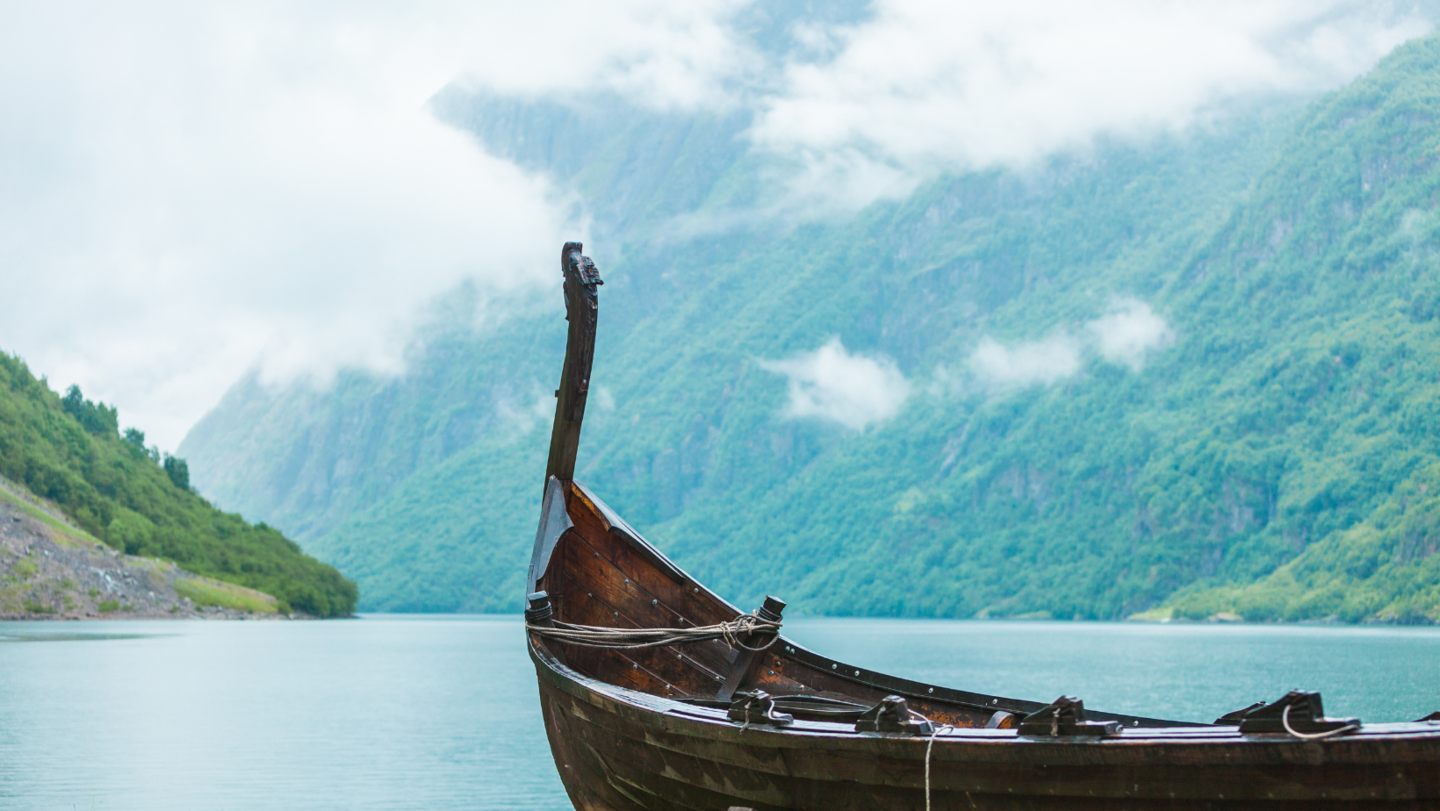
The Vikings, known for their raiding expeditions, disrupted the established powers of Anglo-Saxon England. The Norse raiders’ persistent forays into the British Isles caused an imbalance in power, resulting in a series of events that culminated in unification.
Unsettling Anglo-Saxon England
The Vikings’ aggressive approach to expansion played out through both conflict and settlement. Their relentless Viking raids across Europe brought wealth back home while unsettling various English kingdoms. However, it was not all about bloodshed; these fearless seafarers also knew when to trade instead of raid.
Norse traders interacted extensively with other European societies which shaped many aspects of medieval history as we know it today. As they sailed from one kingdom to another for trading activities or battles alike, cultural exchange became inevitable.
A remarkable number of towns in present-day England owe their origins to Viking settlers who chose farming over fighting at times – this gives us clues about how deeply embedded they were within society.
- In fact, if you come across place names ending in “-by,” “-thorpe,” “-thwaite,” or “-dale,” chances are high that Vikings settled there.
- Towns like Grimsby (from Grimr’s by) and Scunthorpe (Skuma’s Torp) serve as testaments to this legacy still visible on modern maps.
The silver coins found scattered throughout Northern Europe provide archaeological evidence supporting historical accounts described in Icelandic sagas, too.
This blend between settling down and taking up arms had an interesting outcome – it pushed towards unification. While these Norse warriors initially posed a threat, they also forced the scattered English kingdoms to unite for survival. So ironically, the very people who had caused so much disruption were instrumental in forging what would eventually become a unified England.
Understanding Viking history helps us understand how our past shapes today’s world. It’s not just about epic sagas and legendary heroes; it’s about real people making tough choices in challenging times – a testament to human resilience that we can still learn from.
Key Takeaway: Legacy of Viking Exploration
There were names ending in “-by” and “-Thorpe.” These place names, with their Norse roots, remind us of a time when Vikings weren’t just raiders but settlers too. They played a crucial role in shaping the landscape and culture of Anglo-Saxon England. So next time you spot these suffixes on your travels, remember they’re not mere geographical markers; they’re windows into our rich Viking past.
Scandinavian Kingdoms Birthed from the Viking Age
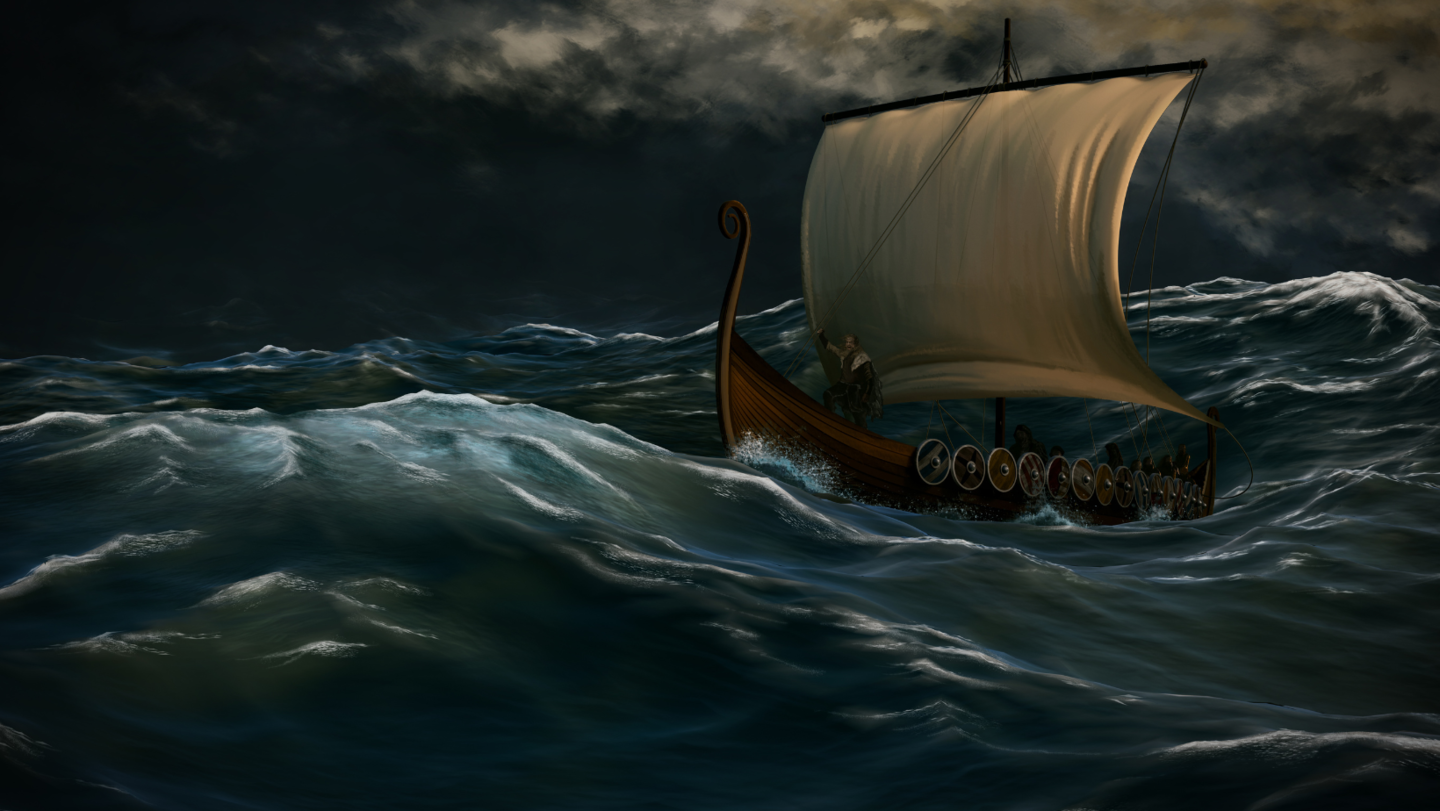
The Scandinavian kingdoms of Denmark, Sweden, and Norway are deeply rooted in the age of Vikings. This was a period when these seafaring Norse warriors embarked on exploration journeys, raiding expeditions, and formed settlements across Northern Europe.
The legacy of Viking exploration isn’t just confined to their famous raids or establishment of trading networks but extends far more into political realms. Their exploratory zeal led to the consolidation of power at home, too. As they ventured out for plunder or trade back home in Scandinavia, things started taking shape under leaders like Harald Finehair, who aimed at uniting smaller chieftaincies into larger territories.
Viking raids were not merely acts of aggression; they also facilitated cultural exchanges and the formation of new socio-political structures, which eventually laid down the foundation for emerging Scandinavian kingdoms. To understand this transformation, we need to dive deeper into history, where tales woven around battles between great men offer clues about the formation of these medieval states.
Formation of Danish Kingdom
In the 9th century AD, the legendary figure Ragnar Lothbrok is said to have united Danish tribes against the common threat – the Frankish Empire located southward of them. His efforts marked the beginnings of a consolidated Denmark, which later emerged as a powerful maritime nation during the Viking era thanks to its strategic location and access to the vast seas of the Baltic Sea and the North Atlantic Ocean, giving it easy passage to various regions such as Ireland, England, and even France further west.
Rise of Sweden and Norwegian Statehood
Similarly, their northern neighbors Norway and Sweden underwent a similar process of unification and conquest that happened in parallel to Viking expansion abroad, largely due to figures like Olaf Tryggvason and Stenkil, respectively, who managed to unite scattered tribes and create a unified entity, paving the way for the emergence of a proper national identity in future centuries to come because of the experiences gained during voyages along with the increasing need to protect their home territories from foreign invasions.
So, the Viking Age was more than just longships and raids or exploring new lands. It had a key part in shaping history.
Key Takeaway: Legacy of Viking Exploration
While leaders overseas were establishing trade networks, influential figures like Harald Finehair back home were busy uniting smaller chieftaincies into larger territories. This era was not just about sea voyages and raids – it marked a significant period of political consolidation in Scandinavia. These shifts led to cultural exchanges that had profound influences on the centuries to come.
Trade Routes Established by Viking Exploration
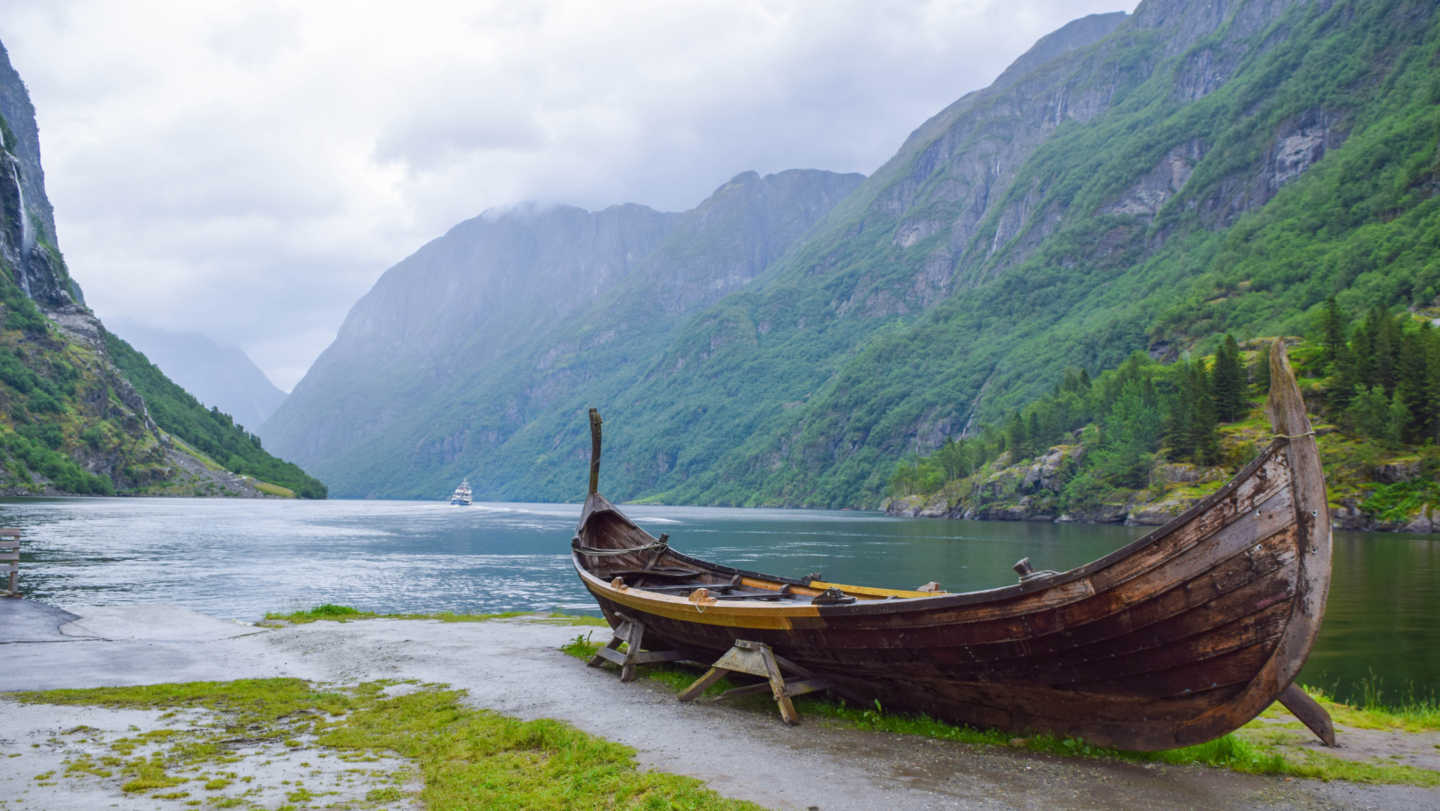
The Vikings, notorious for their raiding and pillaging, were also accomplished traders. Vikings’ travels covered a lot of ground, forming trading networks that linked up different parts of Europe.
Viking Trade and the Revival of Europe’s Economy
Post-Roman Empire, Europe’s economy was on a downturn. But with the advent of Viking trading activities came an economic revival. The Norse traded goods like fur, tusks, seal fat (used as lamp fuel), and even slaves—sadly a common practice during those times—with far-off lands such as Byzantium (now Istanbul) in the Byzantine Empire.
This expansive network of trade routes played a crucial role in rebuilding economies throughout northern Europe. These paths allowed not just goods but ideas to travel long distances—an exchange that would shape societies for centuries to come.
Their remarkable seafaring skills let them traverse large bodies of water effortlessly which enabled this widespread reach—a testament to their shipbuilding prowess.
The Far-reaching Influence: From North America To Eastern Europe
Famously known for being fierce warriors on raiding expeditions or exploring uncharted territories—their footprint spanned from Newfoundland’s L’Anse aux Meadows all the way up to Black Sea coasts, establishing settlements at both ends.
In fact, did you know? they made it over here before Christopher Columbus. They formed settlements not only there but reached places where the Roman empire couldn’t—like Iceland—and created thriving communities while adapting themselves to new environments against odds set by ice age conditions.
- Norse influence can still be seen today through place names rooted in Old Norse, a testament to their widespread reach and lasting impact.
- The Vikings’ exploration prowess allowed them to traverse long distances, thus creating trade routes that spanned continents.
These hardy seafarers left an indelible mark on medieval history through their explorations. The interconnectedness they fostered by opening up trade across Europe played a pivotal role in shaping the continent’s future—economically, politically, and culturally.
Key Takeaway: Legacy of Viking Exploration
The Vikings often remembered for their fierce warfare, also laid the foundation of vast trade routes across Europe. Their trading sparked an economic revival in post-Roman Empire Europe, and their far-reaching explorations established settlements from North America to Eastern Europe. This widespread influence can still be seen today through place names rooted in Old Norse – evidence of their lasting impact.
The Viking Exploration of North America
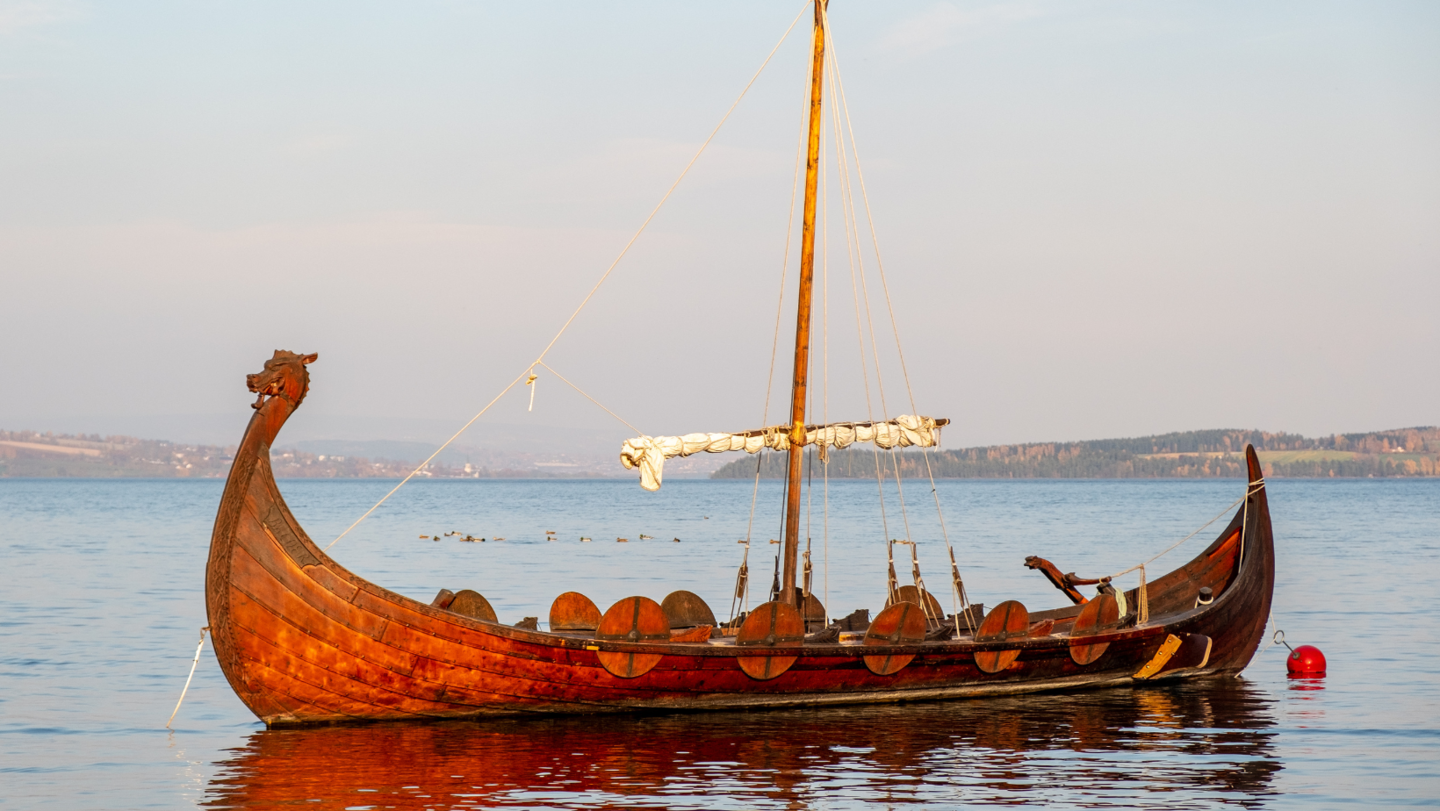
When we think about the discovery of North America, most folks’ minds jump to Christopher Columbus. Did you know that it was actually the Vikings who preceded Columbus in exploring North America? Yes, those fearsome Norse seafarers journeyed across vast oceans and were among the first Europeans to set foot on American soil.
First Contact with North America
Around 500 years before Columbus even dreamt of his voyages, Leif Eriksson had already made landfall in a place he named Vinland. This isn’t some tall tale from an Icelandic saga either; there’s hard evidence at L’Anse aux Meadows, a verified Norse site in Newfoundland today.
Vikings weren’t just warriors; they were explorers, too. Using their sturdy longships for transportation purposes over long distances helped them reach new lands beyond Northern Europe and Eastern Europe, including Iceland, Greenland, and as far off as North America.
But what drove these daring Viking explorers like Thorfinn Karlsefni towards such uncharted territories? Was it simply a thirst for adventure or something more practical?
In Search of New Lands: Viking Exploration
Life in the Middle Ages was far from ideal. The Medieval period was marked by climatic changes after the Ice Age, which caused significant shifts in Scandinavian societies during the Middle Ages. Increased population led to the scarcity of arable lands, prompting Vikings’ raiding expeditions, looking for new places to settle down where settlers survived through farming or fishing.
The Lasting Impact of Viking Exploration
Viking exploration has shaped our understanding of medieval history with archaeological evidence suggesting they established settlements way before any other European explorer reached this continent, thus rewriting our perspective on newly discovered lands once considered the ‘New World.’
While Viking influence waned after the Battle of Stamford Bridge in 1066, their legacy continued to live on through place names, common English words derived from the Scandinavian word, and, more importantly, our understanding of exploration. This period, marked by large-scale movement not only for raiding but also for settling, formed a crucial part of human history.
Key Takeaway: Legacy of Viking Exploration
Contrary to popular belief, it was the Vikings, not Columbus, who first set foot in North America. Their daring exploration was driven by a need for new lands due to scarcity back home. They left an enduring legacy through settlements predating other Europeans, influencing place names and English words. This reshaped our understanding of the ‘New World’ discovery.
Influence of Viking Culture on Language and Society
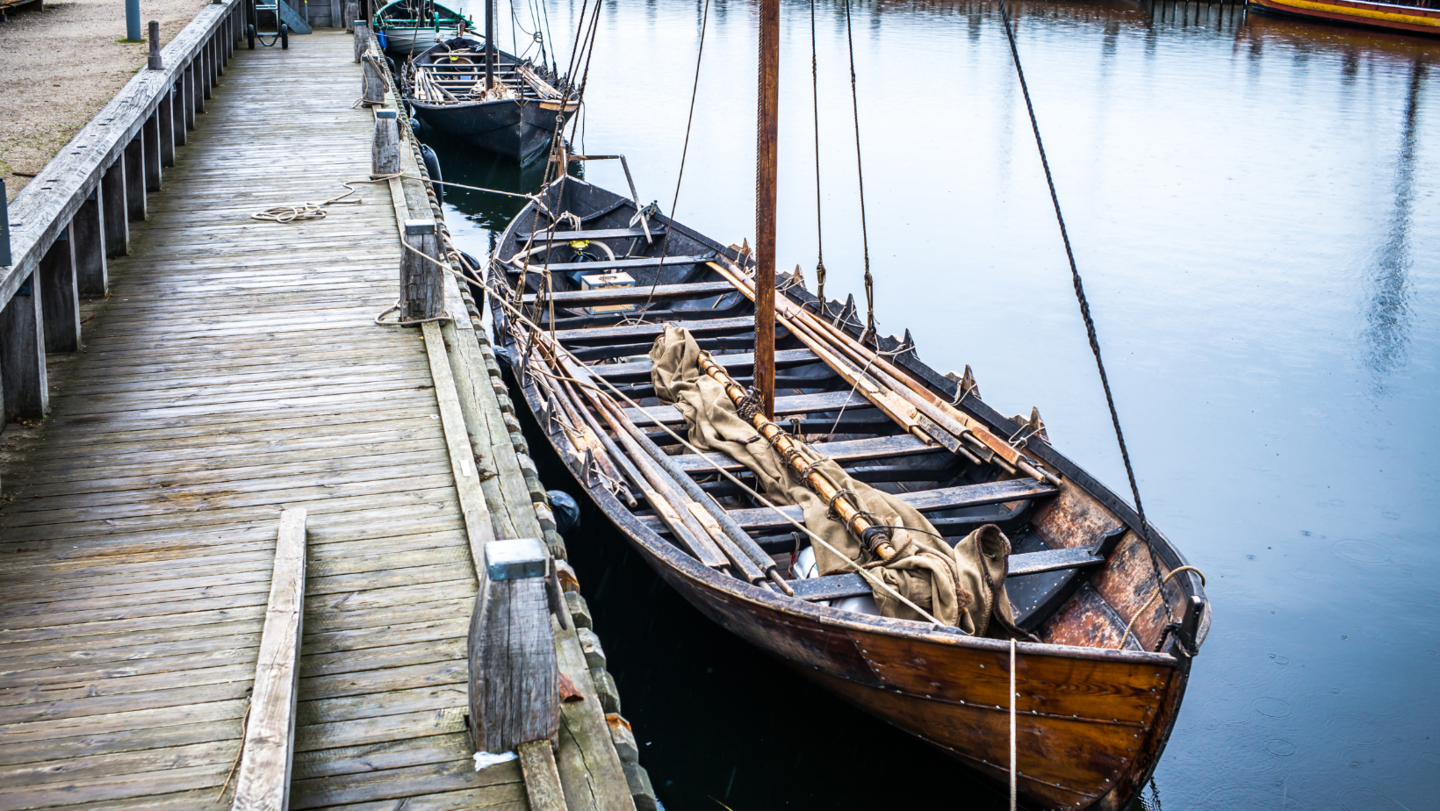
Their influence reached far beyond the shores they visited; it seeped into everyday life through words we use even today.
The Linguistic Legacy of the Vikings
When you wake up to start your week every Monday or perhaps toast with friends over a drink each Friday, have you ever wondered about the origins of these days’ names? These common English terms actually owe their existence to Old Norse gods: Moon’s Day (Monday) and Freyja’s Day (Friday).
This is just one instance where our modern language has been shaped by Viking culture. The infusion of Old Norse led to hundreds of new additions in local languages, spanning from warlike terminologies to commonplace words that paint our daily conversations.
Social Integration and Cultural Exchange
Beyond linguistic influences, Vikings had lasting impacts through cultural exchanges. As they settled parts across northern Europe like Iceland, Greenland – often referred to as Vinland in Icelandic sagas – or the Faroe Islands after raiding expeditions, societies saw significant changes.
Vikings brought novel societal structures that later integrated within various communities, forming settlements. Here, you can find more about how these adventurous settlers survived challenging environments while leaving an indelible imprint upon societies around them.
The beauty lies not only in knowing that part of your vocabulary owes its roots back to those fierce Viking warriors but also in understanding how intertwined histories are – filled with stories yet untold.
Political Contributions by Vikings
The political landscape shaped by the Vikings is fascinating. Not only did the Vikings create new realms, but they also founded some of the earliest democratic organizations.
The Establishment of Althing
Did you know that one such institution was Iceland’s parliament, known as Althing? It stands today as a testament to their progressive thinking and governance strategies. Founded in 930 AD, it remains functional to this day, making it one of the world’s oldest parliamentary bodies.
In addition to this remarkable achievement on Icelandic soil, another significant contribution was made to the Isle of Man, where they created Tynwald – an early assembly system that laid the foundations for present-day legislation practices there.
This indicates how influential Viking rule had been during its peak across Northern Europe and other parts under their control. The effective systems developed are worth noting because these helped ensure orderliness amidst their expansive conquests and settlements.
Fascinatingly enough, both Althing and Tynwald show traces back to ‘Thing,’ an Old Norse word meaning assembly or council – further proof of Viking influence in political affairs.
FAQs in Relation to Legacy of Viking Exploration
What was the legacy of the Vikings?
The Viking legacy includes vast exploration, impactful trade routes, cultural and language influences, as well as political structures like Iceland’s Althing.
What was the effect of Viking exploration?
Viking explorations led to significant shifts in power dynamics across Europe. They also discovered North America before Columbus did.
What was significant about Viking exploration?
Vikings’ journeys connected diverse cultures through trade routes and led to settlement in places like England and North America.
What impact did the Vikings have on the world?
Vikings reshaped global history with their expansive travel, influenced languages extensively, established key political systems, and transformed societal norms through cultural exchanges.
Conclusion: Legacy of Viking Exploration
The legacy of Viking exploration is an intricate tapestry woven with threads of courage, discovery, and lasting impact. Vikings were not just raiders but also traders who connected distant lands through their vast trade routes.
They unsettled Anglo-Saxon England only to contribute towards its unification. The Vikings had a hand in forming the countries of Denmark, Sweden, and Norway as they exist now.
Vikings ventured into North America long before Columbus did; they established settlements in Greenland and Iceland. Their linguistic contributions are still evident in our everyday language use.
Their political innovations echo even today: the world’s longest-running parliament was born out of their ingenuity. So remember, every Norse word you speak or place name you encounter echoes this rich Viking past!
From Viking exploration to Roman mosaics, check that article out next!

